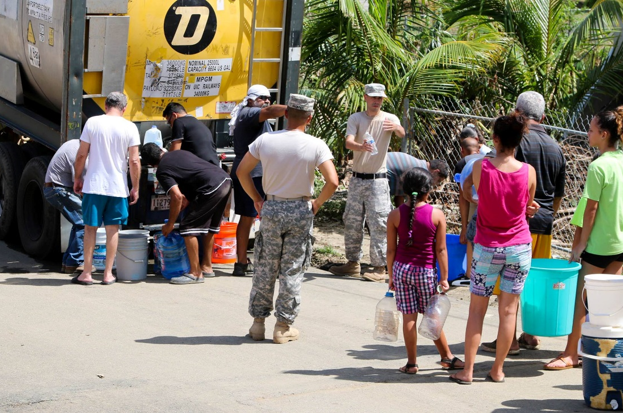Views expressed in opinion columns are the author’s own.
It’s been more than a year since Hurricanes Maria and Irma hit Puerto Rico. Given how much damage the storm caused on the island — as well as the death toll, which is now estimated at 2,975 — the U.S. government’s inaction is stark.
In a time of constant disaster and media overload, it’s all too easy to let issues that don’t affect us fade quietly into the background. It may feel like Puerto Rico should be doing OK by now, because one of the mainland U.S. states probably would have gotten the help it needed in that time. Yet while most of Puerto Rico’s electrical infrastructure and water systems have been repaired, they are still very unstable, and funding for restoring the island to its previous state is low.
These natural disasters have left a disproportionate amount of people without access to proper housing and nutrition. About 1.4 million Puerto Ricans will be left with barely enough money to feed themselves and their families if the federal government doesn’t continue to fund the Nutrition Assistance Program at a higher level.
NAP provides Puerto Rico with about $2 billion to deliver nutritional assistance to extremely poor households on the island. NAP is capped at that amount, regardless of how much is needed to meet the changing needs of low-income households in Puerto Rico. This means NAP has to raise or lower the requirements for eligibility to provide assistance with the given funds.
In contrast, the Supplemental Nutrition Assistance Program — which most people know as food stamps — provides assistance to the 50 states as well as some territories in the U.S. and receives funding based on the number of eligible individuals.
There is already an issue here: SNAP’s funding is adjustable to support the changing number of eligible citizens, while Puerto Rico has to deny assistance to citizens living on the island because their funding is not flexible. Until Congress authorizes higher funding, the Puerto Rican people have to work within the $2 billion they are allotted.
Puerto Rico is a territory of the United States, which means the federal government has a responsibility to support and care for those living there. Citizens of this nation are not only in its 50 states.
Given that Puerto Rico has only one, non-voting, delegate in Congress, citizens of the island have very little say in how federal money is apportioned to them. Because of this, it falls to the rest of the country to take an interest in what happens to Puerto Rico. While the House of Representatives has approved an additional $600 million in NAP funding, the Senate has yet to make a decision on the issue.
It’s not enough to offer thoughts and prayers and share this article with your circle of friends on Facebook. I’m not asking you to protest, donate and do any of those things that so many of us are reluctant to do. I want you to call your senators — let them know that their constituents care about Puerto Rico, and that they should too.
Liyanga de Silva is a junior English and women’s studies major. She can be reached at liyanga.a.ds@gmail.com.



